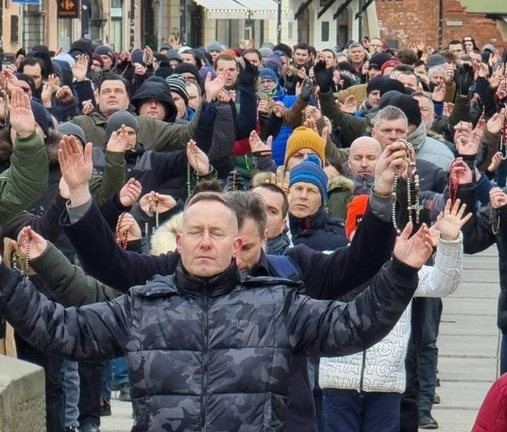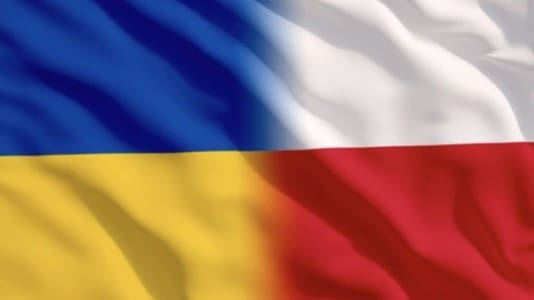Bishop Jure Bogdan, the military ordinariate in Croatia, called men praying the rosary on the streets of Croatian cities “a sign of the times.” Referring to the initiative that Croatian believers took from Poles, the bishop recalled the time of the 1990s war for Croatia’s independence.
“Then, we prayed the rosary of the Blessed Mother in families, churches, sanctuaries, on squares, secretly and publicly. The rosary of the Blessed Mother became a symbol of the spiritual strength, unity, and community of our nation,” the bishop said. He further emphasized the importance of contributing to unity and praying for the unity of the nation.
During the war for Croatia’s independence, the rosary prayer had a special meaning. When Croatia fought for independence with an enemy several times more powerful, the rosary was very important to us Croats. Most veterans, even those who were not believers, wore it around their necks. Even today, when Croatian soldiers go on pilgrimage to Lourdes, they have a rosary on their uniform lapel.
Bishop Juraj Jezerinac, the military ordinariate during the war, noted that he distributed about 700,000 rosaries to people at that time.
What does Bishop Bogdan’s speech tell us today?
It is the first positive public comment by a Croatian bishop on men publicly praying the rosary on the streets. Bishop Bogdan’s speech is very important because it is happening at a time when left-liberal media are ridiculing and attacking the prayer meetings that regularly take place on the first Saturdays of the month in several cities in the country.
As I have already mentioned, this spiritual initiative brought together believers from Poland and Croatia. It should be noted that Croatian Catholics began to pray under the influence of Poles. Recently, members of the Polish community, the Warriors of Mary, co-hosted one such meeting in Split. The Croats, on the other hand, visited the general assembly of this community, which took place recently in Płock.
Considering the history and many other valuable initiatives between Poland and Croatia, one popular saying could be paraphrased to: “Pole and Croat, brothers be.”






